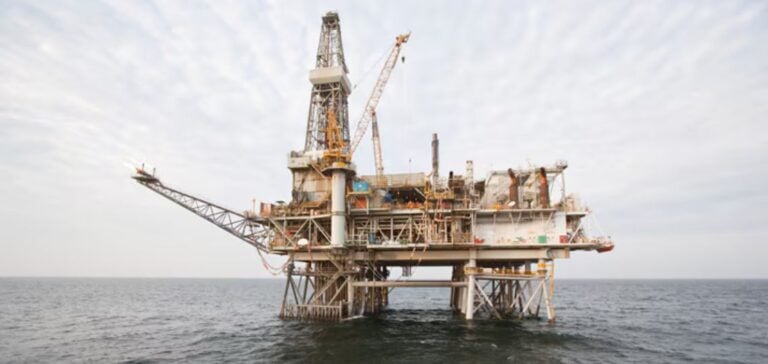Azerbaijan relies heavily on its oil and gas resources.
According to the International Energy Agency (IEA), hydrocarbons account for 90% of the country’s exports, provide almost half of government revenue, and account for around a third of GDP.
Crude oil production will reach 32.7 million tonnes by 2022, while natural gas production will reach 35 billion cubic meters.
This economic concentration exposes the country to the vagaries of world markets, making economic diversification crucial.
The Azeri-Chirag-Guneshli (ACG) oil field, operated by BP in partnership with SOCAR, remains one of the country’s major sites, accounting for more than half of national oil production.
Although the field’s potential is declining, it continues to play a central role in the country’s energy strategy.
At the same time, gas production is progressing at the Shah Deniz site, a key offshore field that supplies a large proportion of the gas exported via the Southern Gas Corridor, an infrastructure linking Azerbaijan to Europe.
Gas as a Strategic Alternative
Faced with the slowdown in oil production, Baku is focusing on natural gas as a more stable alternative.
The Shah Deniz gas reserves, also operated by BP, provide a substantial source of revenue.
The Southern Gas Corridor, passing through Georgia and Turkey on its way to Europe, aims to reduce European dependence on Russian sources.
This infrastructure strengthens Azerbaijan’s position as a strategic gas supplier, particularly in the current geopolitical context marked by a reduction in Russian exports.
The objective is clear: to increase gas export capacity by 35% by 2034.
This ambition is based on sustained investment in gas infrastructure and the exploitation of existing fields.
However, the country also has to cope with the demands of markets and commercial partnerships, while managing the expectations of European players for supply stability.
Towards a Necessary Economic Diversification
Extreme dependence on hydrocarbons is prompting Azerbaijan’s decision-makers to consider reforms to diversify the economy.
Although initiatives are underway to develop other sectors such as agriculture, light industry and services, transformation remains slow and requires in-depth reform.
Infrastructure, the regulatory framework and financial transparency are critical areas for improvement to attract foreign investment.
The transition to a more diversified economy is proving complex, especially in a context where the hydrocarbon sector continues to dominate exports and government revenues.
The necessary reforms affect both industrial policies and domestic market conditions, with a growing need for support for the private sector and innovation.
International stakes and positioning
Internationally, Azerbaijan is adapting its strategies to take advantage of geopolitical developments and fluctuating energy needs.
At a time when sanctions against Russia have reshaped energy flows in Europe, the country is positioning itself to capture a share of this short-supplied market.
However, this requires an energetic policy of optimizing infrastructures and securing long-term partnerships.
Looking to the future, Azerbaijan’s energy strategy must reconcile the optimal exploitation of its fossil fuel resources with the modernization of its economic fabric.
The development of production and export capacities is envisaged within the framework of a pragmatic policy, aimed at maximizing the country’s comparative advantages while reducing the vulnerabilities associated with an overly concentrated economy.






















